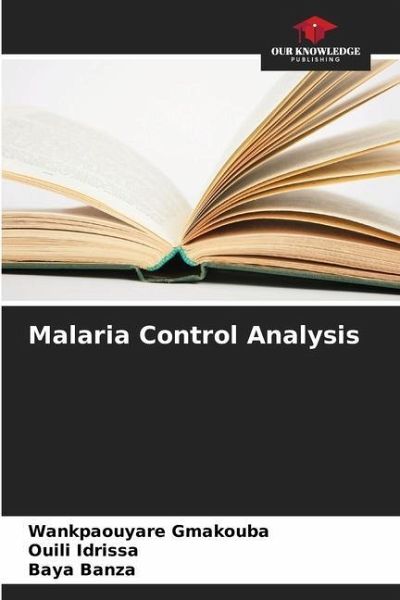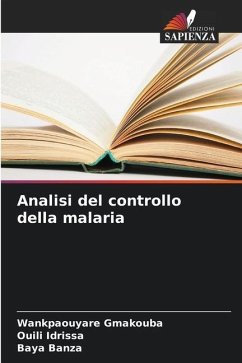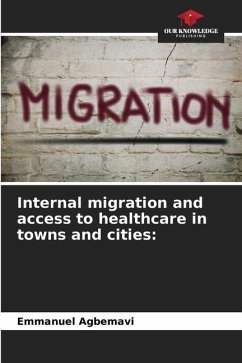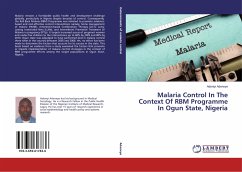
Malaria Control Analysis
Versandkostenfrei!
Versandfertig in 6-10 Tagen
43,99 €
inkl. MwSt.

PAYBACK Punkte
22 °P sammeln!
In Togo, the national health policy mentions malaria as a public health problem. The revised 2011-2015 NSP with a projection to 2017 for the fight against malaria is part of the implementation of the PNDS. The objective of this work is to contribute to the improvement of this program through a critical analysis of the elements of its design and implementation. The results obtained show that the program's objectives, strategies and activities are in line with the health needs of users in terms of access to care, treatment and prevention of malaria. However, some shortcomings were observed in th...
In Togo, the national health policy mentions malaria as a public health problem. The revised 2011-2015 NSP with a projection to 2017 for the fight against malaria is part of the implementation of the PNDS. The objective of this work is to contribute to the improvement of this program through a critical analysis of the elements of its design and implementation. The results obtained show that the program's objectives, strategies and activities are in line with the health needs of users in terms of access to care, treatment and prevention of malaria. However, some shortcomings were observed in the formulation of the program's objectives and strategies. In terms of implementation, nearly three-quarters of the planned activities have been started and more than half of them have been completed. Malaria prevention practices are a priority for the control of this scourge in Togo. The contents of communication in the fight against malaria and the means of prevention should take into account the socio-demographic realities and the life habits of the population groups.












